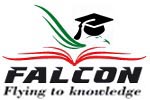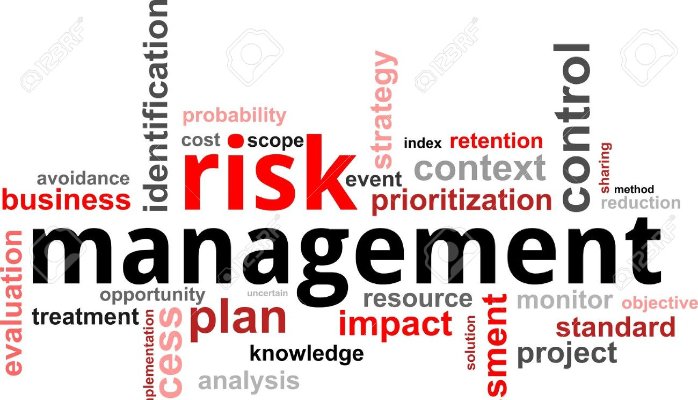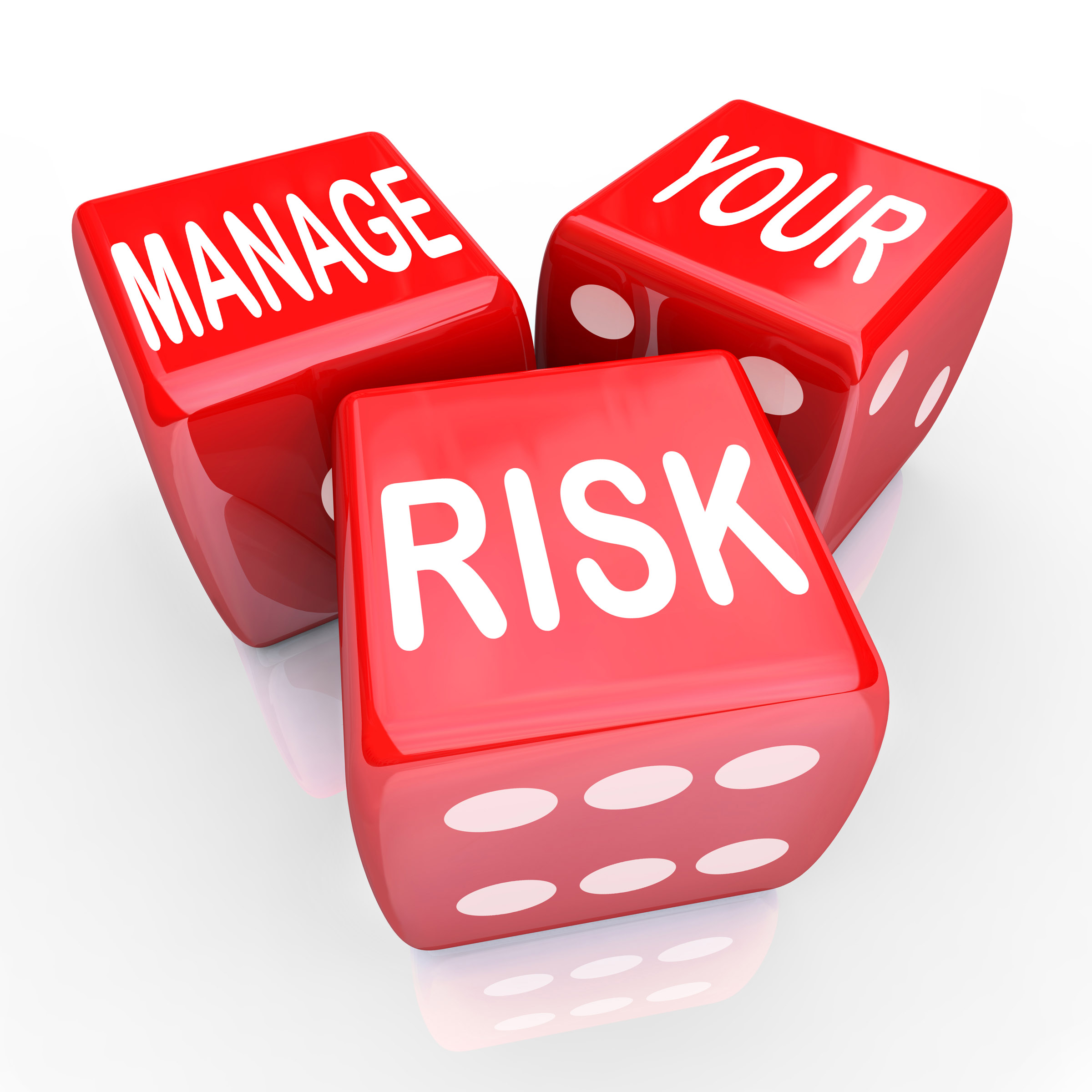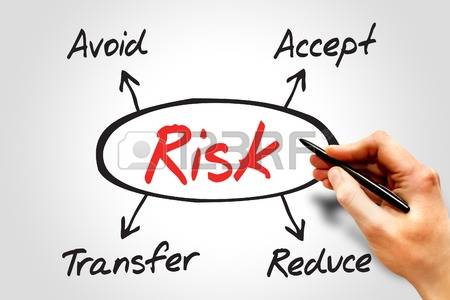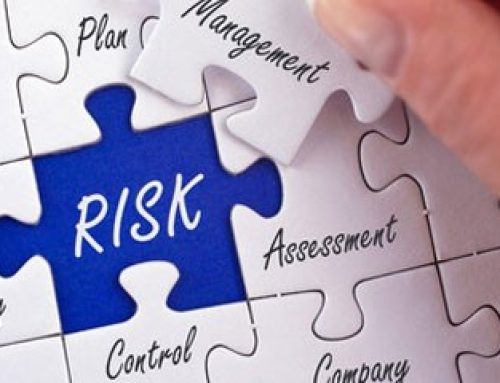Project Description
Why attend
The course is carefully developed to reflect the best practices that match the training requirements of the Project Management Institute (PMI). The course will cover also thoroughly the 5 areas comprising the PMI/RMP certification.
Course Objectives
By the end of the course, participants will be able to:
Develop understanding and skills in risk management.
Develop understanding and skills in stakeholder engagement.
Develop understanding and skills in risk identification.
Develop understanding and skills in performance of qualitative and quantitative analysis.
Develop understanding and skills in risk monitoring and reporting.
Who should attend
The course provides an outline of all significant aspects and respects of risk management for all managers, engineers and supervisors who already have knowledge of project management techniques and tools. Many managers are responsible for projects and need to manage risk in a professional manner. For many others there is requirement about knowledge in risk management when managing project.
Course Outline
Mission 1
Develop Risk Assessment Processes and Tools that Quantify Stakeholder Risk Tolerances in Order to Assess and Determine Risk Thresholds for the Project and Set Criteria for Risk Levels.
Mission 2
Update Risk Policies and Procedures Using Information such as Lessons Learned from Projects and Outputs of Risk Audits in Order to Improve Risk Management Effectiveness.
Mission 3
Develop and Recommend Project Risk Strategy Based on Project Objectives in Order to Establish the Outline for the Risk Management Plan.
Mission 4
Produce Risk Management Plan for the Project on the Basis of Inputs such as Project Information, External Factors, Stakeholder Inputs, and Industry Policies and Procedures in Order to Define, Fund, and Staff Effective Risk Management Processes for the Project that Align with Other Project Plans.
Mission 5
Establish Evaluation Criteria for Risk Management Processes Based on Project Baselines and Objectives in Order to Measure Effectiveness of the Project Risk Process.
Knowledge of:
- Continuous Process Improvement as Applied to Risk Management
- Knowledge Management Techniques for Organizing and Providing
- Access to Project Risk Information
- Metrics for Measuring Effectiveness of Project Risk Process
- Risk Attitude Concepts
- Risk Breakdown Structure (RBS)
- Risk Tolerance Concepts
- Barriers to Effective Risk Management
- Project Risk Management Inputs, Tools, Techniques, and Outputs
- Project Risk Contingency and Management Reserve
- Research and Analysis Techniques
- Basic Strategy Development Methodologies
Skills in:
- Assessing Stakeholder Risk Tolerance
- Building Stakeholder Consensus
Mission 1
Promote a Common Understanding of the Value of Risk Management by Using Interpersonal Skills in Order to Foster an Appropriate Level of Shared Accountability, Responsibility, and Risk Ownership.
Mission 2
Train, Coach, and Educate Stakeholders in Risk Principles and Processes in Order to Create Shared Understanding of Principles and Processes, and Foster Engagement in Risk Management.
Mission 3
Coach Project Team Members in Implementing Risk Processes in Order to Ensure the Consistent Application of Risk Processes.
Mission 4
Assess Stakeholder Risk Tolerance Using Processes and Tools such as Interviewing Stakeholders and Reviewing Historical Stakeholder Behaviors in Order to Identify Project Risk Thresholds.
Mission 5
Identify Stakeholder Risk Attitudes and Cognitive Biases Using Stakeholder Analysis Techniques in Order to Manage Stakeholder Expectations and Responses Throughout the Life of the Project.
Mission 6
Engage Stakeholders on Risk Prioritization Process Based on Stakeholder Risk Tolerance and Other Relevant Criteria, in Order to Optimize Consensus Regarding Priorities.
Mission 7
Provide Risk-Related Recommendations to Stakeholders Regarding Risk Strategy and Planning, Risk Process Facilitation, Risk Reporting, and Specialized Risk Mission s by Using Effective Communication Techniques in Order to Support Effective Risk-Based Decision Making.
Mission 8
Promote Risk Ownership by Proactively Communicating Roles and Responsibilities and Engaging Project Team Members in the Development of Risk Responses in Order to Improve Risk Response Execution.
Mission 9
Liaise with Stakeholders of Other Projects by Using Effective Communication Techniques and Sharing Information on Project Risk Performance in Order to inform them of Implications for their Projects.
Knowledge of:
- Information Resources, Both Internal (for Example, OPA) and External (for Example, EEF)
- Project Performance Information
- Stakeholder Sensitivity Analysis Models
- Training and Coaching Techniques
- Types of Stakeholder Risk Attitudes (Including but Not Limited Risk Seeking, Risk Tolerant, and Risk Averse)
- Group Decision Making
- Group Creativity (Including but Not Limited to Brainstorming, Nominal Group Technique, Delphi Technique, Idea/Mind Mapping, and Affinity Diagram)
Skills in:
- Assessing Stakeholder Risk Tolerance (Appetite and Attitude)
- Collaborating with Stakeholders
- Managing Teams in Multicultural Environments
- Influencing Change
Mission 1
Apply Risk Assessment Processes and Tools in Order to Quantify Stakeholder Risk Tolerances and Determine Risk Levels.
Mission 2
Facilitate Risk Identification Using a Variety of Techniques in Order to Enable the Project Team and Stakeholders to Understand and Determine the Risk Exposure
of the Project.
Mission 3
Facilitate the Project Team’s Evaluation of the Identified Risks’ Attributes Using Qualitative and Quantitative Tools and Techniques in Order to Prioritize the Risks for Response Planning.
Mission 4
Facilitate the Development of an Aligned Risk Response Strategy and Related Risk Actions by Risk Owners from the Information Gathered During Risk Analysis in Order to Ensure Timely and Defined Action When Required.
Mission 5
Facilitate the Formulation of Project Contingency Reserve Based on the Risk Exposure of the Project in Order to have the Capability and Resources to Respond
to Realized Risks.
Mission 6
Provide Risk Data to Cost and Schedule Analysts/Estimators to ensure that Project Risk is Properly Reflected in Cost and Schedule Estimates for the Project.
Mission 7
Use Scenarios to Validate Potential Risk Responses and Evaluate Key Dependencies and Requirements in Order to Enhance the Likelihood of Project
Success.
Knowledge of:
- Basic Risk Identification Tools and Techniques for Both Threats and Opportunities (Including But Not Limited to Brainstorming, Checklists, Prompt Lists, Assumptions and Constraints Analysis, Interviews, Questionnaires, Cause and Effect Analysis, SWOT Analysis, Document Review, Affinity Diagrams, and Lessons-Learned Review from Similar Projects)
- Basic Qualitative Risk Analysis Tools and Techniques (Including but Not Limited to Probability-Impact Matrices, Risk Scoring, Risk Breakdown Structure Analysis, Root Cause Analysis, Pareto Prioritization Analysis, And Risk Metric Trend Analysis)
- Basic Quantitative Risk Analysis Tools and Techniques (Including but Not Limited to Monte Carlo Analysis, Decision Trees, FMEA/FMECA/Fault Tree Analysis, And Sensitivity Analysis)
- Heuristics and Other Dynamic Sources of Cognitive Biases and their Associated Effects on Risk Perception and Behavior
- Risk Response Strategy Types
- Contingency Management Tools and Techniques
- Risk Monitoring and Control Techniques
- Group Decision Making
- Group Creativity (Including but Not Limited to Brainstorming, Nominal Group Technique, Delphi Technique, Idea/Mind Mapping, And Affinity Diagram)
Skills in:
- Using Analytical Software Tools for Project Risk Management
- Managing Teams in Multicultural Environments
- Estimating Probability and Impact of Identified Risks
Mission 1
Evaluate the Attributes of Identified Risks Using Advanced Quantitative Tools and Specialized Qualitative Techniques in Order to Estimate Overall Risk Exposure of the Project.
Mission 2
Analyze Risk Data Produced During the Project Using Statistical Analyses and Expert Judgment in Order to Determine Strengths and Weaknesses of Risk Strategy and Processes and Recommend Process Improvements When Indicated.
Mission 3
Perform Specialized Risk Analysis Using Advanced Tools and Techniques in Order to Support Stakeholder Decision Making for the Project.
Knowledge of:
- Advanced Risk Identification Tools and Techniques for Both Threats and Opportunities (Including but Not Limited to Force Field Analysis, Scenario Planning, Futures Thinking, Visualization, Delphi Groups, and Nominal Group Technique)
- Advanced Quantitative Risk Analysis Tools and Techniques (Including but Not Limited To, Integrated Cost/Schedule Analysis, Advanced Monte Carlo Analysis, System Dynamics, Bowtie Analysis, Analytical Hierarchy Process, Risk-Based Earned Value Analysis, Risk-Based Critical Chain Analysis, and Multi-Factor Regression Analysis, Modeling Techniques, Advanced Risk Metric Analysis [Including Statistical Process Control])
- Tools and Techniques For Identifying and Analyzing Overall Project Risk (Including but Not Limited to Risk Efficiency Index, Risk Tolerance Analysis, Risk Reserve Analysis, Risk Metric Trend Analysis, Risk Taxonomy, Risk Connectivity Analysis, Monte Carlo Analysis Against Overall Project Objectives, Project Risk Surveys, and Correlation Analysis)
- Basic and Advanced Statistics
- Estimation Tools and Techniques to Support Risk Decision Making (Including but Not Limited to Prioritization, Cost-Benefit Analysis, Analogous, Parametric, and Bottom-Up)
- Advanced Theory of Heuristics and Other Sources of Cognitive Bias
- Variance/Earned Value Analysis
Skills in:
- Converting Qualitative Information into Risk Data
- Building Representative Risk Models
- Managing and Interpreting Quantitative and Qualitative Data
Mission 1
Document and Periodically Update Project Risk Information Using Standard Tools (Including but Not Limited to Risk Register, Risk Database) and Techniques in Order to Maintain a Single, Current Repository of All Project Risk Information.
Mission 2
Coordinate with Project Manager Using Communication Techniques in Order to Integrate Risk Management Throughout The Project.
Mission 3
Create Periodic Standard and Custom Reports Using Risk-Related Metrics as Specified in the Risk Management Plan in Order To Communicate Risk Management Activities and Status.
Mission 4
Monitor Risk Response Metrics by Analyzing Risk Response Performance Information, and Present to Key Stakeholders in Order to Ensure Resolution of Risk and Develop Additional Risk Response Strategies to Address Residual and Secondary Risks.
Mission 5
Analyze Risk Process Performance against Established Metrics in Order to Drive Risk Process Improvements.
Mission 6
Update the Project Risk Management Plan Using Relevant Internal and External Inputs in Order to Keep the Plan Current.
Mission 7
Capture Risk Lessons Learned Through Comprehensive Review of the Project Risk Management Plan, Risk Register, Risk Audits, Risk Process Performance Reports, And Other Associated Reports in Order to Incorporate into Future Risk Planning.
Knowledge of:
- Continuous Process Improvement and Quality Management as Applied to Risk Management
- Knowledge Management Techniques for Organizing and Providing Access to Project Risk Information
- Alternative Formats for Project Risk Reports (for Example, Top Risk List, Risks Transitioned to Issues, Response Plans Behind Schedule, Risk Triggers, and Risk Outcomes)
- Requirements for Risk Register Data Fields
- Risk Statement Construction
- Risk Response Activity Construction
- Risk Response Metrics
- Risk Process Performance Metrics
- Risk Assessment Analysis Metrics
- Risk Management Reserves
The workshop
This interactive training course includes the following training methodologies as presented on the next column based on percentage of the total tuition hours:
Lectures
Workshops & Work presentation
Case Studies & Practical Exercises
Videos, Sofware & General Discussion
The course instructor may modify the above training methodology before or during the course for technical reasons with no prior notice to participants.
Falcon Consulting Professionals is established in Greece for the last 15 years in the areas of technical consulting and professional training for the local industries. Falcon is expanding in GCC, aiming to provide the best consulting and training solutions to the industries of the region. Falcon’s instructors are accredited trainers and highly experienced in their fields, as well as adult training. We aspire to build our business relationships on mutual trust. The achievement of results with an emphasis on innovation and sustainability, quality, cost analysis and time scheduling are non-negotiable from the conceptual phase of the training.
